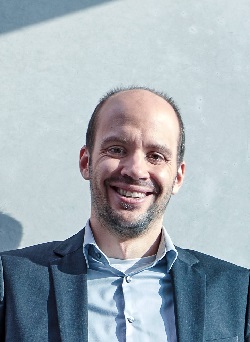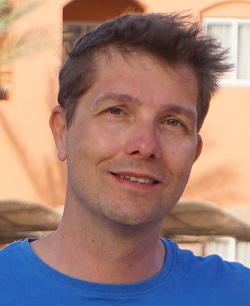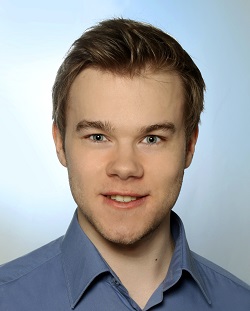Senior Key Expert for Verification & Validation; Siemens Corporation, Princeton, NJ, USA
research topics: Robustness of AI, adversarial attacks, and verification of safety-critical systems
Senior Key Expert for User Experience; Siemens Corporation, Princeton, NJ, USA
research topics: explainable AI and efficiency. Helmut drives Explainable AI (XAI) research at Siemens with a focus on human-computer interaction.
Innovation Manager for Industrial AI; Siemens AG, Nuremberg, Germany
research topics: industrial-grade AI.
Senior Key Expert for Visual Analytics; Siemens AG, Munich, Germany
research topics: Visual-based explainable AI.
PhD Candidate - Industrial AI; Siemens AG, Nuremberg, Germany
research topics: Interpretable, Interactive, and Informed ML.
Engage with the tutorial audience, present, and discuss the following topics:
We expect the tutorial audience to discuss the topics and share their own experiences and knowledge.

Dr. Christof J. Budnik is a Senior Key Expert Engineer for Model-based Testing and Verification of Intelligent Systems at Siemens Technology in Princeton, NJ. He leads research and business projects in several industrial domains, striving for innovative test technologies to solve real world problems. Before joining Siemens he was department head of software quality for a German company in the global smart card market. Dr. Budnik obtained his Ph.D. in Electrical Engineering 2006 from the University of Paderborn, Germany which was awarded by the faculty. He is author of more than sixty published contributions at international journals and conferences among them some receiving best paper awards. Dr. Budnik is a regular program chair member of several software engineering conferences and workshops and serves as associate guest editor and reviewer for selected journals.

Helmut Degen is co-chair of the "AI in HCI" Conference (Artificial Intelligence in Human-Computer Interaction, affiliated with the HCI International Conference) that brings together researchers from industry and academia to share advances in the research area of AI in HCI. He received a PhD (Dr. phil.) from the Freie Universität Berlin and a master's in Computer Science (Diplom-Informatiker) from the Karlsruhe Institute of Technology (both in Germany).

Ralf Gross graduated as Master of Science in Electrical Engineering, Electronics and Information Technology at the Friedrich-Alexander-University Erlangen-Nuremberg in 2019. After graduation he joined Siemens Digital Industries as AI Engineer in pre-development, focused on the development of AI-based solutions for shopfloor environment and leading research projects focusing on AI technology. Today, Ralf works as Innovation Manager and Group Lead for an Innovation Team focusing on Industrial AI, aspiring to combine cutting-edge technology with customer needs in production environments.

Stefan Hagen Weber graduated as Master of Business Informatics at the University of Mannheim before he joined Siemens AG in 1999. He drives the technology Visual Analytics with respect to the area of decision support and business intelligence in combination with machine learning algorithms within Siemens AG. As a Senior Key Expert for Visual Analytics he has years of experience in strategic roadmap and portfolio planning, implementations, project management, and technical consultancy for Visual Analytics, data integration and data science.

Alexander Koebler graduated as Master of Engineering in Electronic and Mechatronic Systems at the Nuremberg Institute of Technology in 2021. This is followed by doctoral studies at an innovation department for industrial AI at Siemens Digital Industries and the Goethe University Frankfurt. In his efforts towards a PhD on the topic of “Human-Centered AI Using Domain Knowledge” Alexander is investigating the intersection between interpretable, interactive, and informed machine learning. His tasks within an innovation team also include the development of AI-based solutions for shopfloor environments.